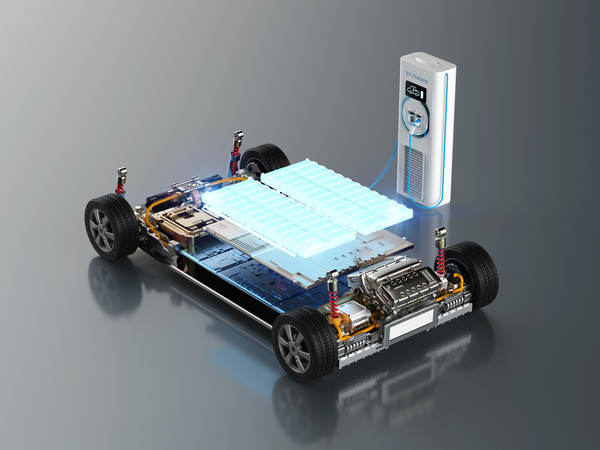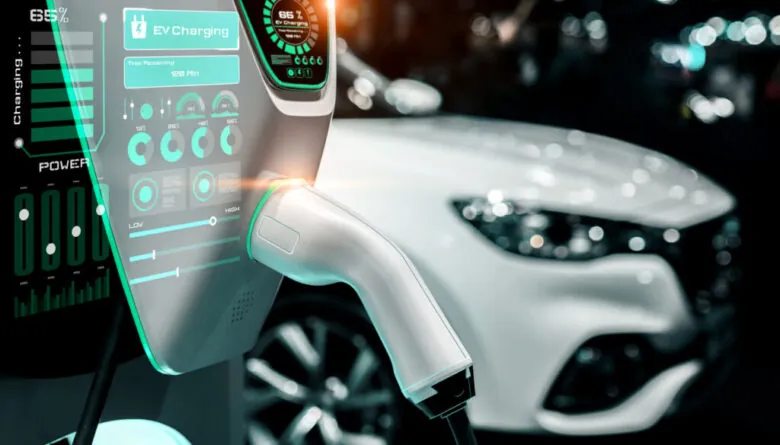Inside Electric Car Battery Tech: What You Need to Know The rapid development of electric vehicles (EVs) has ushered in a new era of transportation, offering a cleaner, more sustainable future. One of the key components that make this technological leap possible is the electric car battery. As the heart of every electric vehicle, electric car battery technology plays a pivotal role in driving the industry forward. This article delves deep into the fascinating world of electric car batteries, exploring how they work, the latest innovations, and what the future holds for these powerhouses of green technology.

What Are Electric Car Batteries?
At their core, electric car batteries store electrical energy that powers the vehicle’s electric motor. Unlike conventional gasoline engines, which rely on combustion to generate power, EVs harness the energy stored in their batteries, converting it into electricity to drive the motor. The primary type of battery used in modern electric cars is the lithium-ion (Li-ion) battery, due to its high energy density, long lifespan, and relatively light weight.
Electric car battery technology is continuously evolving, aiming to solve the challenges of range, charging speed, and cost. Understanding how these batteries function and the various technologies behind them is essential for anyone interested in the future of EVs.
How Do Electric Car Batteries Work?
The functioning of an electric car battery is relatively simple to understand at a high level, though the underlying technology is quite sophisticated. At its most basic, a lithium-ion battery consists of three main components:
- Anode – Typically made from graphite, the anode stores lithium ions when the battery is charged.
- Cathode – Made from a lithium metal oxide, the cathode releases lithium ions to generate electricity.
- Electrolyte – A liquid or gel-like substance that enables the movement of lithium ions between the anode and cathode, facilitating the charging and discharging process.
When the car is in use, lithium ions move from the anode to the cathode, generating an electric current that powers the motor. When charging, the process reverses, with ions moving from the cathode back to the anode. This cyclic process allows electric vehicles to use stored energy efficiently and maintain their power over extended distances.
The Evolution of Electric Car Battery Technology
Electric car battery technology has come a long way since the early days of EVs. Initially, the adoption of electric vehicles was hindered by the limitations of battery technology, particularly issues like limited range, long charging times, and high costs. However, in recent years, advancements in battery chemistry, manufacturing, and energy density have propelled electric cars into the mainstream.
Improvements in Energy Density
The higher the energy density, the longer the range a vehicle can travel on a single charge. Early EV batteries had relatively low energy densities, limiting their range to a few hundred kilometers. Today, thanks to improvements in battery chemistry and manufacturing processes, modern EVs are capable of covering over 300 miles on a single charge.
One of the most significant advancements in electric car battery technology has been the development of higher-density lithium-ion batteries. Researchers are continually experimenting with new materials and configurations to increase the energy density of batteries while maintaining or reducing weight. This means that future EVs will not only travel further but will also become more lightweight and efficient.
Fast Charging Capabilities
Charging speed has long been a barrier to the widespread adoption of electric vehicles. Traditional charging methods can take hours, making it impractical for drivers on long trips or those with limited charging infrastructure. However, advances in electric car battery technology are steadily addressing this issue.
New technologies such as ultra-fast charging systems are being developed, which allow electric car batteries to charge to 80% capacity in just 20 minutes. This is a game-changer for EV users, as it significantly reduces charging times and makes EVs more comparable to gasoline-powered vehicles in terms of convenience.
One of the most exciting developments in fast charging is the introduction of solid-state batteries. Unlike traditional lithium-ion batteries, solid-state batteries use a solid electrolyte instead of a liquid one, allowing for faster ion movement and safer, more efficient charging. This technology has the potential to revolutionize electric car battery technology, providing faster charging times, greater energy density, and improved safety.
Battery Life and Durability
The lifespan of an electric car battery is another crucial consideration for consumers. Older lithium-ion batteries had a tendency to degrade over time, losing their ability to hold a charge and reducing their overall range. However, electric car battery technology has evolved significantly, with modern EV batteries designed to last for 8 to 10 years or more with proper care.
Battery manufacturers have focused on improving the durability and longevity of batteries through innovations in materials and battery management systems (BMS). A BMS is a system that monitors the health of the battery, ensuring that it operates within safe parameters and that each cell is charged and discharged evenly. This helps prevent premature degradation and ensures that the battery lasts as long as possible.
Additionally, the widespread use of thermal management systems, which regulate the temperature of the battery pack, helps improve performance and extends the lifespan of the battery, particularly in extreme climates.
The Role of Recycling in EV Batteries
As the number of electric vehicles on the road increases, so too does the demand for batteries. However, the environmental impact of battery production and disposal has raised concerns. Fortunately, electric car battery technology has made strides in addressing these issues through battery recycling.
Recycling is an essential component of the sustainable future of EVs. By reusing valuable materials like lithium, cobalt, and nickel from old batteries, manufacturers can reduce the environmental impact of mining and produce new batteries more efficiently. In addition, recycling helps mitigate the potential issues related to the disposal of large quantities of spent batteries.
Several companies are leading the charge in developing efficient battery recycling technologies. Some are working on methods to extract more than 95% of the raw materials from used batteries, making the process more cost-effective and less harmful to the environment.
The Future of Electric Car Battery Technology
The future of electric car battery technology is incredibly exciting, with many innovations on the horizon that promise to further improve the performance, cost, and sustainability of electric vehicles. As automakers and researchers continue to invest heavily in R&D, we can expect to see some groundbreaking developments that will make EVs even more appealing to consumers.
Solid-State Batteries: The Holy Grail of EV Technology
One of the most eagerly anticipated advancements in electric car battery technology is the development of solid-state batteries. As mentioned earlier, solid-state batteries use a solid electrolyte, as opposed to the liquid electrolyte used in conventional lithium-ion batteries. This change has the potential to greatly improve the performance of EV batteries in several ways:
- Increased energy density: Solid-state batteries can store more energy in the same amount of space, leading to longer driving ranges for electric cars.
- Faster charging: Solid-state batteries charge more quickly than traditional lithium-ion batteries, potentially reducing charging times to just minutes.
- Improved safety: Solid-state batteries are less prone to overheating and are less likely to catch fire, making them safer for consumers.
Several major companies, including Toyota, BMW, and Volkswagen, are investing heavily in the development of solid-state battery technology. While there are still technical challenges to overcome, such as scalability and manufacturing costs, solid-state batteries could be the next big breakthrough in the world of electric cars.
Lithium-Sulfur Batteries: A New Frontier
Another promising technology is lithium-sulfur (Li-S) batteries, which have the potential to revolutionize electric car battery technology. Lithium-sulfur batteries offer several advantages over traditional lithium-ion batteries, including:
- Higher energy density: Lithium-sulfur batteries can store more energy in a smaller, lighter package, potentially offering electric cars longer ranges.
- Lower cost: Sulfur is abundant and inexpensive, making lithium-sulfur batteries potentially much cheaper to produce than lithium-ion batteries.
- Environmentally friendly: Sulfur is more abundant and less toxic than the materials used in lithium-ion batteries, making Li-S batteries more sustainable.
Although lithium-sulfur batteries are still in the early stages of development, they hold significant promise for the future of electric vehicles. Researchers are working to overcome challenges such as low cycle life and poor conductivity, but once these hurdles are cleared, lithium-sulfur batteries could become a game-changer in electric car battery technology.
Conclusion
The development of electric car battery technology is crucial to the widespread adoption of electric vehicles and the transition to a more sustainable future. From advancements in energy density to innovations in fast charging and battery recycling, the electric vehicle industry is evolving rapidly to meet the demands of consumers and the environment.
As new technologies like solid-state and lithium-sulfur batteries come into play, we can expect electric cars to become more efficient, affordable, and accessible. These advancements will not only make EVs more appealing to consumers but also help reduce the environmental impact of transportation, ultimately contributing to a greener, cleaner world.
The road ahead for electric car battery technology is filled with exciting possibilities, and the next few years will undoubtedly see even more groundbreaking innovations. For anyone invested in the future of transportation, the continued evolution of EV batteries will be an exciting space to watch.





